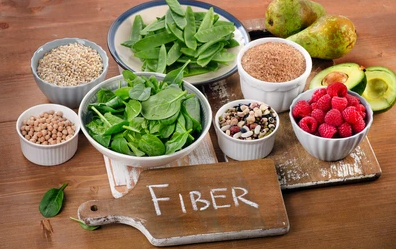What is Worm Infection?
A worm infection, also known as a helminth infection or parasitic worm infection, occurs when a person becomes infected with parasitic worms. These worms are multicellular organisms that can live and reproduce inside the human body, causing a variety of symptoms and health problems. Now days people want fastest solution and so for that best worm infection meds is iverheal 12 mg or iverheal 6 mg.
There are several types of parasitic worms that can infect humans, including:
- Roundworms (Nematodes): These include species like Ascaris lumbricoides, which can cause intestinal infections, and Toxocara spp., which can cause visceral larva migrans.
- Tapeworms (Cestodes): Examples include species like Taenia saginata (beef tapeworm) and Taenia solium (pork tapeworm). These worms can infect the intestines and cause symptoms such as abdominal pain, weight loss, and malnutrition.
- Flukes (Trematodes): Examples include species like Schistosoma spp., which can cause schistosomiasis, a parasitic disease affecting the urinary and intestinal systems.
Worm infections are typically acquired by ingesting the eggs or larvae of the parasitic worms through contaminated food, water, or soil. Some worms can also be transmitted through contact with infected animals or by the bite of infected insects.
Symptoms of worm infections can vary depending on the type of worm involved and the location of the infection. Common symptoms may include:
- Abdominal pain
- Diarrhea
- Nausea and vomiting
- Fatigue
- Weight loss
- Itching or rash
- Anemia (in severe cases)
In some cases, worm infections may be asymptomatic, especially during the early stages of the infection. However, even without obvious symptoms, the worms can still cause damage to organs and impair overall health.
Diagnosis of worm infections typically involves a combination of medical history, physical examination, and laboratory tests. Stool samples may be examined for the presence of worm eggs or larvae, and blood tests can sometimes detect specific antibodies or other indicators of infection.
Treatment for worm infections usually involves medication prescribed by a healthcare professional. Commonly used medications include anthelmintics, which are drugs designed to kill or expel the worms from the body. Proper hygiene practices, such as regular handwashing, consuming clean food and water, and maintaining a clean living environment, can also help prevent worm infections.
It’s important to consult a healthcare professional if you suspect you have a worm infection. They can provide an accurate diagnosis and recommend appropriate treatment options based on the specific type of worm involved and the severity of the infection.
What are the Powerful Anti-Parasitic Foods?
There are several powerful anti-parasitic foods that can help in the prevention and treatment of parasitic infections. While these foods may not necessarily eliminate parasites on their own, they can support your immune system and create an environment that is less favorable for parasites to thrive. Here are some examples:
- Garlic: Garlic contains a compound called allicin, which has anti-parasitic properties. It can help eliminate various types of parasites, including intestinal worms.
- Pumpkin seeds: Pumpkin seeds contain an amino acid called cucurbitacin, which is toxic to parasites. They are particularly effective against intestinal parasites like tapeworms and roundworms.
- Pineapple: Pineapple contains an enzyme called bromelain, which has anti-parasitic properties. It can help in the elimination of intestinal parasites.
- Papaya: Papaya contains an enzyme called papain, which can aid in the digestion of proteins and help eliminate parasites. It is especially effective against intestinal worms.
- Coconut oil: Coconut oil contains medium-chain fatty acids, such as lauric acid, which have anti-parasitic properties. Consuming coconut oil may help in the treatment of parasites, especially those affecting the digestive system.
- Ginger: Ginger has antimicrobial and anti-inflammatory properties, which can help in combating parasites. It can also aid digestion and support the immune system.
- Turmeric: Turmeric contains a compound called curcumin, which has anti-inflammatory and anti-parasitic properties. It can help in reducing inflammation and supporting overall immune function.
- Fermented foods: Fermented foods like sauerkraut, kimchi, and kefir contain beneficial bacteria that support a healthy gut microbiome. A balanced gut microbiome can help prevent parasitic infections.
- Pomegranate: Pomegranate has anthelmintic properties, which means it can help in expelling intestinal worms. Consuming pomegranate juice or seeds may aid in the treatment of parasitic infections.
- Raw honey: Raw honey has antimicrobial properties and can help in fighting off certain parasites. It is important to note that honey should not be given to children under one year of age due to the risk of botulism.
While these foods can provide support in the prevention and treatment of parasitic infections, it’s important to consult a healthcare professional if you suspect you have a parasitic infection. They can provide an accurate diagnosis and recommend appropriate treatment options.
You may also like
-
Buy Shilajit Online: A Modern Path to Ancient Wellness
-
The Best Shilajit Brands: A Complete Guide to Quality, Purity & Performance
-
Unlocking Nature’s Secret: The Best Place to Buy Shilajit
-
Unlocking Nature’s Ancient Secret Power of Himalayan Fresh Shilajit
-
Breast Augmentation in Dubai: A Journey Toward Confidence and Contour

